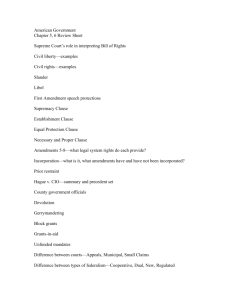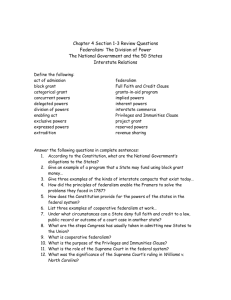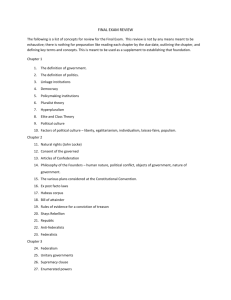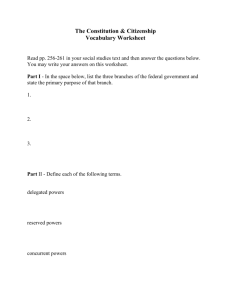Federalism Chapter 4 (pgs 86 – 111) Key Terms
advertisement
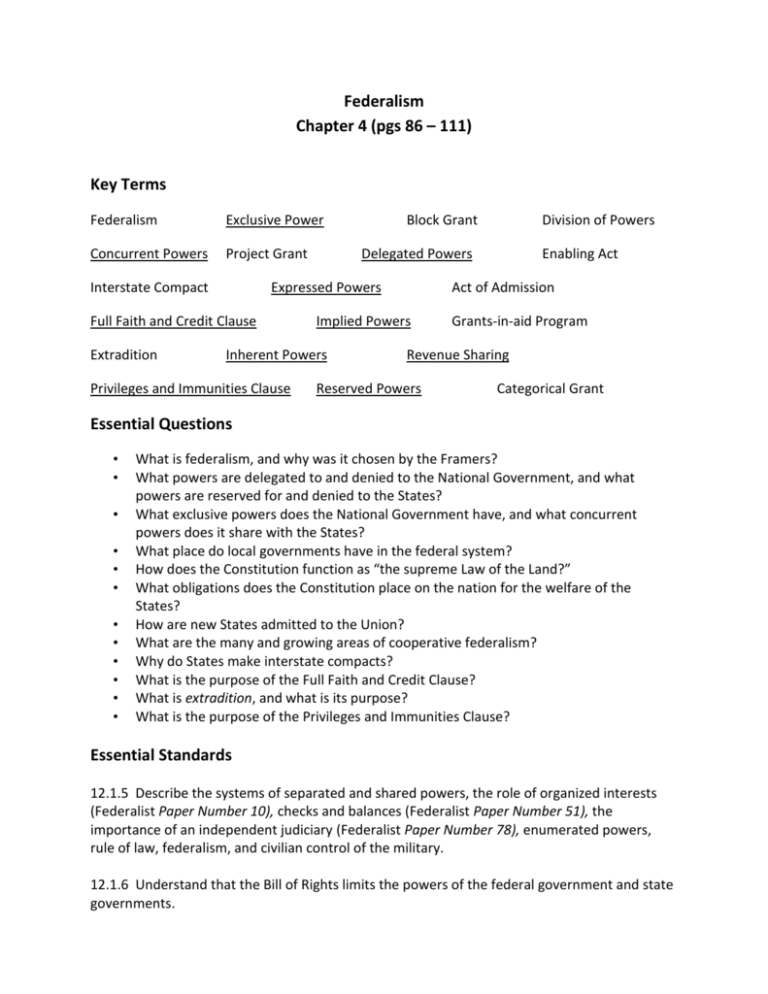
Federalism Chapter 4 (pgs 86 – 111) Key Terms Federalism Exclusive Power Concurrent Powers Project Grant Interstate Compact Enabling Act Act of Admission Implied Powers Inherent Powers Privileges and Immunities Clause Division of Powers Delegated Powers Expressed Powers Full Faith and Credit Clause Extradition Block Grant Grants-in-aid Program Revenue Sharing Reserved Powers Categorical Grant Essential Questions • • • • • • • • • • • • What is federalism, and why was it chosen by the Framers? What powers are delegated to and denied to the National Government, and what powers are reserved for and denied to the States? What exclusive powers does the National Government have, and what concurrent powers does it share with the States? What place do local governments have in the federal system? How does the Constitution function as “the supreme Law of the Land?” What obligations does the Constitution place on the nation for the welfare of the States? How are new States admitted to the Union? What are the many and growing areas of cooperative federalism? Why do States make interstate compacts? What is the purpose of the Full Faith and Credit Clause? What is extradition, and what is its purpose? What is the purpose of the Privileges and Immunities Clause? Essential Standards 12.1.5 Describe the systems of separated and shared powers, the role of organized interests (Federalist Paper Number 10), checks and balances (Federalist Paper Number 51), the importance of an independent judiciary (Federalist Paper Number 78), enumerated powers, rule of law, federalism, and civilian control of the military. 12.1.6 Understand that the Bill of Rights limits the powers of the federal government and state governments.

